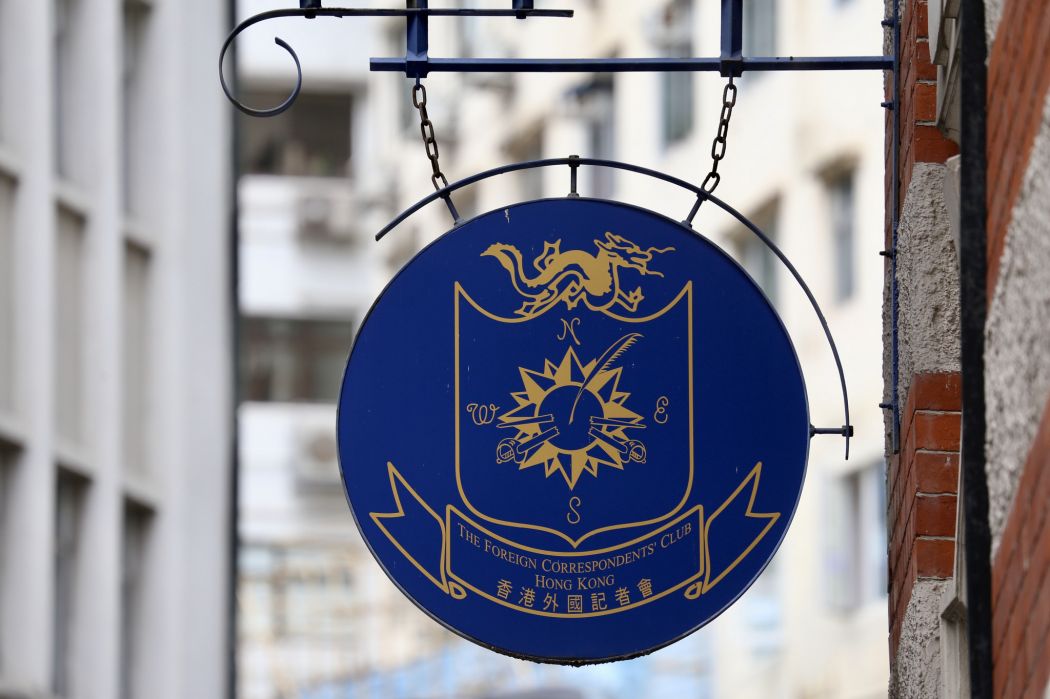China’s foreign ministry in Hong Kong has defended the ousting of American journalists at three newspapers from the mainland following criticism from a local press club.
Wednesday’s move to strip US citizens reporting for the New York Times, Washington Post and Wall Street Journal of their China credentials marked an escalation in tit-for-tat tactics between the two nations. China’s foreign ministry said the move was in retaliation for “unwarranted restrictions” on state media working in the US.

“They will not be allowed to continue working as journalists in the People’s Republic of China, including its Hong Kong and Macao Special Administrative Regions,” China’s Ministry of Foreign Affairs said. However, it is unclear how the restriction will be implemented in the Special Administrative Regions, which guarantee press freedom, or how they will affect American journalists with SAR permanent residency.
Article 27 of the Basic Law guarantees freedom of speech and freedom of the press in Hong Kong, while Article 33 states that residents have freedom of choice of occupation. Article 154 (2) also says that the SAR government may apply immigration controls on entry into, stay and departure of people from foreign states and regions.
FCCC Statement on the Mass Cancellation of U.S. Journalist Credentials in China pic.twitter.com/YSYMWxBdSb
— Foreign Correspondents’ Club of China (@fccchina) March 18, 2020
The Foreign Correspondents’ Club (FCC) of Hong Kong responded saying the issuance of employment visas for foreign nationals fell under the jurisdiction of the Immigration Department. Any changes to the system would represent a “serious erosion” of the “One Country, Two Systems” principle, their statement added.

A spokesperson for the Chinese Commissioner’s office in Hong Kong hit back, saying Beijing was compelled to take reciprocal countermeasures against US “oppression” of its overseas media: “[I]nstead of confounding right with wrong and making groundless accusations against China, the FCC should address its complaints to the US administration, urging the latter to immediately change course, undo the damage, and stop its political oppression of and arbitrary restrictions on Chinese media organisations.”
Earlier in March, Washington cut the number of Chinese citizens allowed to work for Beijing’s state-run media in the US by almost half, following the ejection of three Wall Street Journal reporters from China.
‘Unprecedented’
Speaking at the Legislative Council on Wednesday, pro-democracy legislator Claudia Mo said the Chinese government was attempting to choke the free flow of information in Hong Kong.

“The fact that [Beijing] would so blatantly include Hong Kong into this particular move, pretending, of course, that Hong Kong is just collateral damage,” she said. “They couldn’t care less about ‘One Country, Two Systems’ in Hong Kong anymore because this is in clear violation of the Basic Law, which says under ‘Two Systems,’ we are supposed to be able to look after our immigration matters.”
Civic Party leader Alvin Yeung said that anyone who wished to work in Hong Kong, including journalists, must obtain a work permit from the Immigration Department without the need for approval from the Chinese Foreign Ministry.
“It is unprecedented,” he said. “It is as if Beijing is directly imposing its authority on Hong Kong’s Immigration Department and prohibiting the issuance of work permits.”
Civic Party lawmaker Jeremy Tam criticised the use of the term “foreign missions” to characterisation the three newspapers as arbitrary.
Beijing to oust US reporters from NYT, WashPo, Wall St Journal from China and bar them from journalism in Hong Kong https://t.co/zhBZLvjzci @ClaudiaMCMo @AlvinYeungnk
Reactions from NGOs and lawmakers. pic.twitter.com/uvKxmE4xLX
— Hong Kong Free Press (@HongKongFP) March 18, 2020
“Is opening a supermarket a diplomatic matter then? Does the Bank of America count? What about McDonald’s? China can potentially label everything a ‘diplomatic’ matter once they started with US media outlets,” he said.
“I don’t see the fundamental logic. It is worrying how [Beijing] has distorted ‘One Country, Two Systems’ and the definitions of foreign affairs and defence.”
Affected journalists have been ordered to return their press cards which expire at the end of this year within 10 days.
Additional reporting: Rachel Wong.
